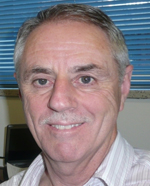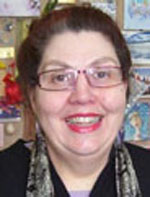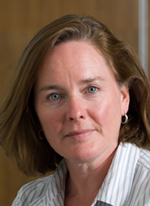Understanding Education Outcomes and Opportunities: An Atlas of South Australia
Tuesday 27 April 2010
AUDIO transcript now available here
Bradley Forum, UniSA City West campus, Hawke Building level 5, 50 North Terrace, Adelaide
Jointly presented by The Smith Family and The Bob Hawke Prime Ministerial Centre
Chair: Ms Karen Grogan, Director, Centre for Participation and Community Engagement, University of South Australia
Speaker: Associate Professor John Glover, Director of the Public Health Information Development Unit
Respondents:
- Professor Marie Brennan, Professor of Education, University of South Australia
- Mr Chris Robinson, Chief Executive, Department of Education and Children's Services
- Dr Mal Hemmerling, Director, Northern Connections

Understanding Educational Outcomes and Opportunities: An Atlas of South Australia highlights large gaps in the learning and development outcomes of children between the most economically and socially disadvantaged and the most advantaged regions, and sets a benchmark for the future performance of the state's early childhood and education sectors.
The Atlas is a joint project between the University of Adelaide's Public Health Information Development Unit and national independent children's charity The Smith Family, and is supported by the SA Department of Education and Children's Services. The data in the Atlas will provide a clear evidence base to help schools, government and the community in future planning and policy development.
The Director of the Public Health Information Development Unit, Associate Professor John Glover, says the report paints a clear picture of the pattern of inequality in educational outcomes and opportunities and the geographic and regional variations. It uses a range of population, socioeconomic and education participation and outcome indicators, and includes data from the recently produced Australian Early Development Index and school literacy and numeracy tests.
Despite generally favourable outcomes for South Australians relative to Australians overall, there are substantial differences within the population. These differences are most marked in remote areas of the State where socioeconomic disadvantage drives substantially poorer outcomes throughout people's educational life.
There are also poorer outcomes in many of the larger suburbs and in areas of greater socioeconomic disadvantage within Adelaide.
The event will commence with a presentation from Associate Professor John Glover, Director of the Public Health Information Development Unit, who will give a brief outline of the Education Atlas.
Speaker biographies

John Glover is Director of PHIDU, the Public Health Information Development Unit, at the University of Adelaide. PHIDU is well known for the social health atlases, describing and monitoring the associations between health outcomes and socioeconomic status in Australia. The atlases present data at a local, regional and national level and, since 2005, have been presented on the World Wide Web using interactive mapping software. In 2007, PHIDU developed its own interactive graphics software, to highlight inequalities in access to and use of services and in outcomes, in education, the labour market, in health and in welfare. The PHIDU web site is a major resource, providing free access to the largest repository of data describing inequality across the population.
Karen Grogan is the Director of the Centre for Participation and Community Engagement at University of South Australia. Karen has over 20 years of experience in education and community services, with a focus on economic and social development. Her experience has spanned the arenas of school transition, disability, youth, mental health and Aboriginal affairs.

Marie Brennan is a Professor of Education at the University of South Australia, where she completed a five year term as Dean of Education and Head of School from 2002-2007. Prior to being an academic, Marie worked for almost twenty years in the Victorian Education Department in a range of positions. Marie is active nationally in promoting the education sector, as well as conducting research, supervising doctoral students and providing leadership in the School of Education. Her research interests cover all sectors of education, with a particular focus on injustice.
Chris Robinson was appointed Chief Executive of the Department of Education and Children's Services (DECS) on 9 October 2006. He has worked in a range of national leadership roles in education and training for more than 20 years.
Chris has held numerous senior executive positions in education and training in the Australian Department of the Prime Minister and Cabinet and in Australian, Queensland and United Kingdom departments with responsibilities for education and/or training. He has a Bachelor of Agricultural Economics degree and a Graduate Diploma of Social Sciences.
Dr Mal Hemmerling has undertaken a diverse range of roles within private enterprise, government, major events, and sport. While perhaps best known for his role as Chief Executive of the Australian Formula 1 Grand Prix, the Sydney Olympics and the Adelaide City Council he has also held senior roles in State Government Departments (including as Commissioner for Business and Consumer Affairs, and Director of Cabinet Office), with major Australian companies, as well as acting as a consultant and company director. In 2009 Mal took up the role of Director, Northern Connections on behalf of the South Australian Government. His challenge is to get better outcomes for Northern Adelaide through improved connectivity between the multiple levels of government, and the private and not-for-profit sectors, and to create and capitalise on opportunities within and for Northern Adelaide. As part of this role he has a particular interest in ensuring that upcoming generations of Northern Adelaide residents have the best possible start in life.
Graham Jaeschke is the General Manager of The Smith Family in South Australia. He joined The Smith Family in June 2008 after working in State and Federal politics for 15 years. Graham's tertiary qualifications are in politics and geography from Flinders University.
The Smith Family
The Smith Family, an independent non-profit organisation, works in partnership with other caring Australians to help disadvantaged Australian children and their families. As research has shown, The Smith Family's work supporting children's education and learning is one of the most effective means of breaking the cycle of disadvantage and ensuring all children have the same opportunity to realise their potential (www.thesmithfamily.com.au).
While the views presented by speakers within the Hawke Centre public program are their own and are not necessarily those of either the University of South Australia or The Hawke Centre, they are presented in the interest of open debate and discussion in the community and reflect our themes of: strengthening our democracy - valuing our cultural diversity - and building our future.




